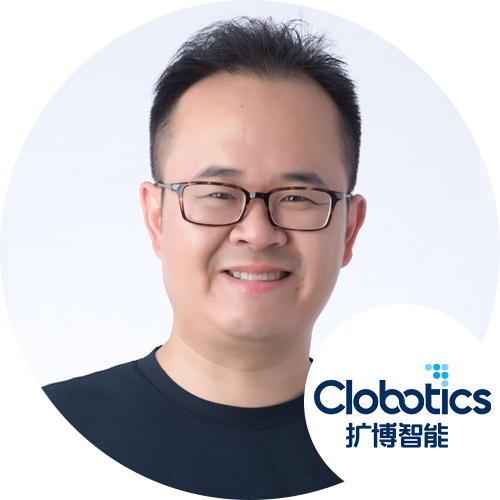
George Yan is the Founder and CEO of Clobotics, a company specializing in integrated industry solutions based on machine vision technology. Clobotics serves a range of industries, including but not limited to wind energy and retail. Headquartered in Shanghai, China, the company also operates an R&D center in Seattle, USA, and an Asia-Pacific sales center in Singapore.
Prior to founding Clobotics, George Yan served as the Chief Operating Officer of EHang, where he was responsible for global sales, marketing, operations, and government affairs. Under his leadership, EHang successfully expanded into markets in North America, Europe, Asia-Pacific, and China, placing its consumer drones in major international retail chains such as Best Buy, Fry's, Maplin (UK), Media Markt (EU), and Harvey Norman (Australia). These efforts drove quarterly sales growth exceeding 50%. Additionally, he built EHang's industrial drone division from the ground up, achieving rapid adoption among enterprise clients.
George Yan spent 15 years at Microsoft before joining EHang. As Vice President and General Manager of Marketing & Operations for Microsoft Greater China, he led the promotion, marketing strategies, and execution of Microsoft's products in the region while overseeing overall business operations. Under his leadership, the team doubled annual sales performance.
In 2011, as General Manager of Microsoft Azure China, Yan successfully launched Microsoft's cloud business in China within just 10 months, making Microsoft the first multinational company to bring a global public cloud to China and put it into commercial operation. Over the following 18 months, he grew Azure's business from zero to $100 million in revenue. His contributions earned him the "Most Influential Cloud Leader in China" award from the Ministry of Industry and Information Technology.
Before that, Yan was Director of the High-Performance Computing team at Microsoft Asia-Pacific R&D Group. He led a collaboration with Dawning Information Industry (Sugon) and the Shanghai Supercomputer Center, enabling the Dawning 5000A supercomputer to rank 10th on the global TOP500 list of supercomputers. This achievement positioned China as the second country, after the U.S., to develop and manufacture petascale supercomputers.
George Yan holds a Master’s degree in Financial Engineering from Columbia University and holds a U.S. patent.
Nestlé developed a personalized nutrition platform through AI technology, significantly shortening its product development cycle. Using AI-driven demand forecasting and inventory management, PepsiCo managed to reduce supply chain costs in multiple markets. According to PepsiCo, AI has helped improve delivery efficiency by over 20% in specific regions.
Unilever's "People Data Centre" utilizes AI to analyze and interpret consumer behavior in real-time, enabling the company to quickly adjust its marketing strategies. Through AI analysis, Unilever has halved its market insights cycle, allowing faster responses to consumer needs.
Danone launched a series of customized health products based on AI data analysis, significantly improving customer satisfaction. After adopting AI, Danone saw a 15% increase in health product sales in several markets, gaining more loyal customers.
Kraft Heinz’s "Kraft-O-Matic" platform analyzes market data before launching new products to predict success rates, helping the company reduce time to market for new products. Since adopting AI, Kraft Heinz has increased new product success rates by about 10%, reducing the costs associated with development failures. By optimizing marketing activities with AI, Kraft Heinz achieved targeted ad placement, raising market conversion rates for certain products by 20%.
Cargill applies deep learning and computer vision technologies in food production to detect impurities and defects in products. Cargill also developed an AI-driven aquaculture management system to optimize fish feed distribution, enhancing the efficiency and sustainability of aquaculture.
Topic Introduction: Artificial Intelligence (AI) is transforming the food industry at an unprecedented rate, affecting every stage from farm to table. AI is making a profound impact on production efficiency, product innovation, food safety, and sustainable development. As consumer demand grows for personalized health and environmentally friendly products, how can food companies leverage AI to increase production efficiency, optimize supply chains, and drive the industry towards a more sustainable future? This topic will focus on forward-thinking AI applications in the food industry, exploring the changes AI brings and the trends shaping its future.

